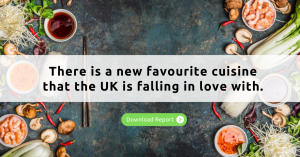If we ask you what the three cornerstones of SEO are, what’s your answer going to be? If your answer is anything other than Expertise, Authoritativeness, and Trustworthiness, you might want to get to know E-A-T. It is Google’s method of manually rating the quality of search results. The assessments are carried out by specialist quality raters Google employs to compare content you generate with Google Quality Rater Guidelines – a handbook published by Google. Find the latest version here: https://static.googleusercontent.com/media/guidelines.raterhub.com/en//searchqualityevaluatorguidelines.pdf
Let’s get to know E-A-T
It’s all about the ‘true purpose of the page.’ The quality raters examine your content, page, and the creator itself to check how much of the three elements are in play. Your Page Quality is then rated to determine the level of E-A-T.
Expertise: Google loves an expert. If the Main Content on your page is the work of an expert in the relevant field and you show credentials to prove it, you got yourself Expertise.
Authoritativeness: This is where recognition becomes imperative. You need to show that your web page, its content, and the content creator have a reputation that gives them the authority to generate content and be accepted to do so.
Trustworthiness: Your site and its content have to be trusted by the public. You need a secured site and a quality backlink. Your content should never infringe copyright and violate laws.
What does a Quality Rater require and do?
- What you need for search result evaluation
- What the acronyms stand for – MC (Main Content), SC (Supplementary Content), etc.
- How to validate the authorship of content and the ownership of the website domain
- How to navigate a website
- Research techniques using Google and other sites to appraise E-A-T of content creators
- Gauge factors for high-quality and low-quality content
- Identifying harmful webpage design, page usability, and page types
- Determining the pages and domains that need to improve E-A-T (such as YMYL sites)
- How to assign scores from “Fully Meets User Needs” to “Fails to Meet User Needs” using the rating slider
- Reviewing a website’s mobile experience
Is E-A-T equivalent to a ranking factor?
Google says not yet. See Gary Illyes’ full response to this when asked at Pubcon Conference about a possible Google E-A-T score https://www.seroundtable.com/google-eat-aligns-ranking-factors-29299.html
How to enhance your E-A-T score
Watch where your links come from
Your inbound links need to come from high-authority domains. Backlinks are the backbone of Authority in E-A-T. Your site authority has a direct tie-in to the quality of links and their quantity. Yet, it’s not as simple as it sounds. Getting natural links from sites with real authority is not an easy task and needs a lot of fact-checking. The easiest way to approach this is to become an authority yourself by creating quality content.
Legit citations
Highly fact-based subjects like science need references back to trusted sources. When you write about health-related topics or scientific claims, you need to include stats, figures, and publications by legitimate sites. It helps your readers understand that you have done your research, and they can trust you. Show direct quotes from studies in parentheses and use a referencing style that enables readers to find the original article. Do not attempt to generate content without familiarising yourself with the original information first.
Keep it current
Science-based and financial content needs an update check before publishing. These are fast-paced topics, and a constant flow of new information is frequent.
Any content carrying medical advice should be assessed for its accuracy and revised with new information. Maintain professional style and tone throughout the content.
Any information you share about legal and financial topics, including tax advice, must come from reliable sources, and with systematic cross-checking.
The Quality Rater Guidelines do not mention Non-YMYL (Your Money Your Life) content, but it needs your attention. Obsolete content gets penalised. Trust can breakdown with information that is not up to date.
Get the reviews in
Reviews are a tool Quality Raters use to decide a company’s online reputation. The more positive reviews you have, the more trust and authority you demonstrate.
The power of Wikipedia
We know this one is not for everyone, but the QRGs do give a shout-out to Wikipedia pages. It is a form of prestige. If your business or organisation has a Wikipedia page, you get to become an authority in your field.
Mention names
Who is behind a webpage is critical for E-A-T. According to Rater guidelines, YMYL pages need trusted and authoritative creators. Landing pages and product pages require company contact information, which is easy to spot. Blog posts must mention author information to show their credentials in the area of interest. With this information, Raters determine expertise.
Personal branding matters
Google Guidelines caution Quality Raters against judging your reputation merely by your information. It is good news for small businesses. Raters take into account third party information to determine your creditability. You need good personal branding to achieve a positive score.
Get tech-savvy SEO
The technical aspect of SEO needs to be in top-shape for higher ranking on search engines. Make sure your website is compatible with search engine guidelines for indexing and crawling. Without the right technical support, your SEO strategies cannot reach their full potential.
Summarising E-A-T
You cannot achieve E-A-T overnight, and it is continuously evolving. There are no shortcuts to proving yourself. It needs to happen over time. The best approach is to keep your users in mind and to create quality content that benefits them. This content should be acceptable, reliable, and dependable. It should have a safe platform, and your users must feel they can trust you.
- To establish legitimacy and value, hire experts.
- Show that you care about your customer base
- Uphold the highest level of integrity
- Display your commitment to Google’s code of conduct
E-A-T may sound like hard work, but it is simple techniques put together with consideration.




